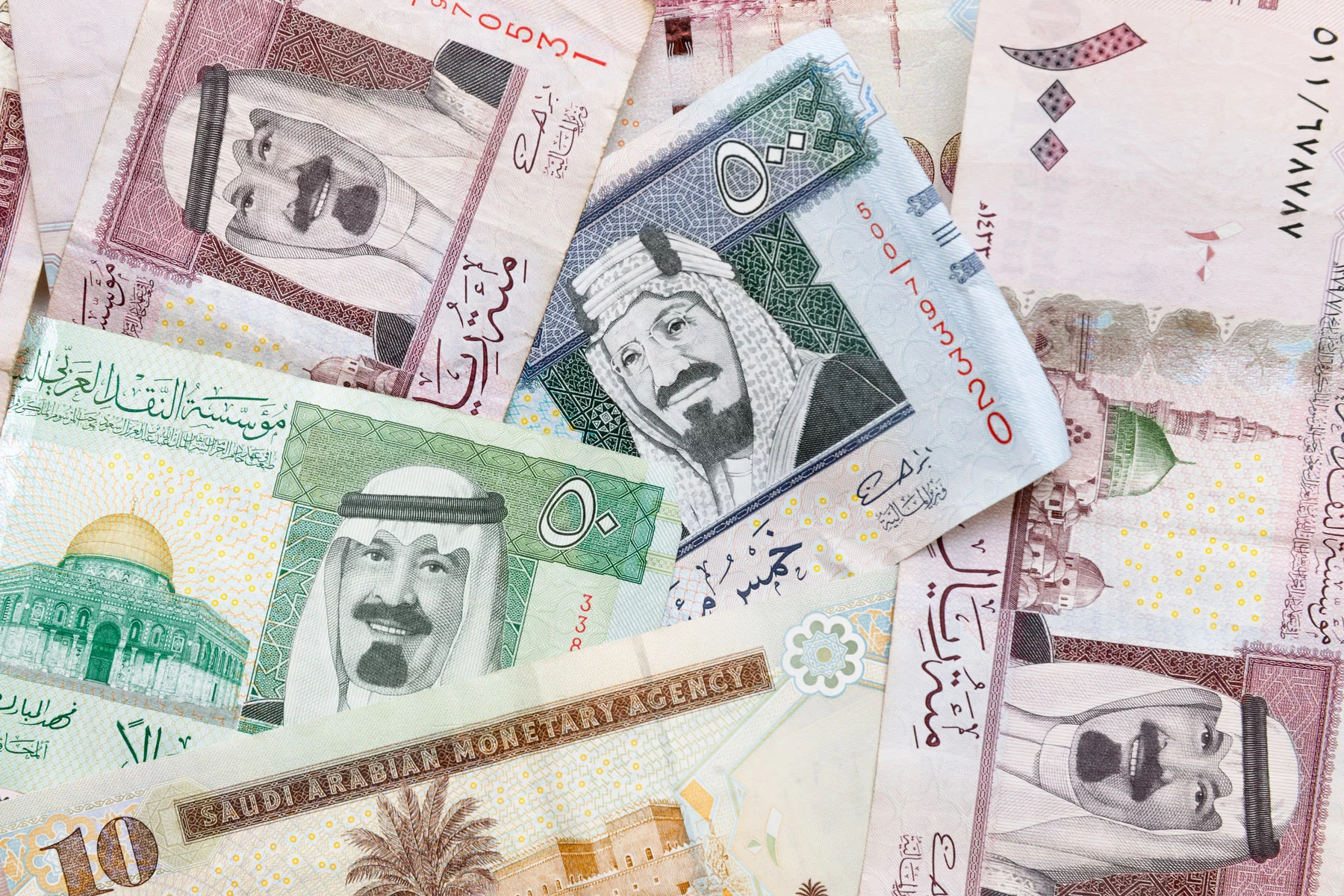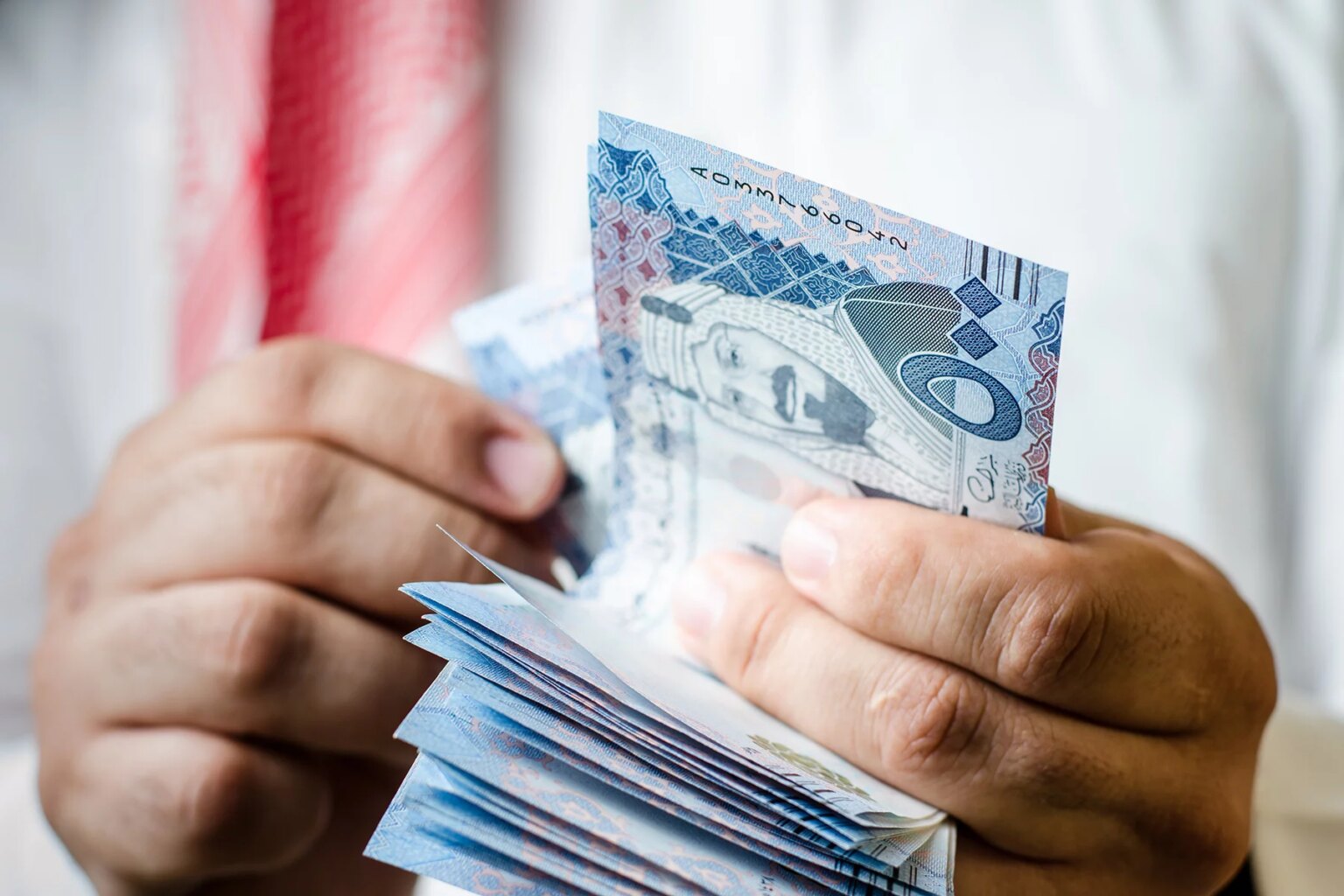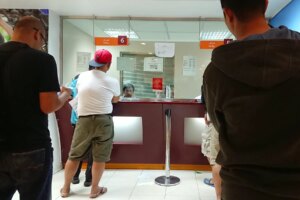According to KPMG, banks in the Kingdom are home to assets worth US$604.9 billion. The industry is marked by strong fundamentals, high liquidity, and rising profits. It is generally considered stable. Although it is one of the GCC’s biggest sectors by assets, banking in Saudi Arabia has seen little structural change over the decades since its inception. However, new market entrants and digital fintech start-ups are set to shake up the market.
This helpful guide offers an overview of the banking sector, the various services available, and information on how expats can open bank accounts. It includes the following sections:
- The banking system in Saudi Arabia
- Currency in Saudi Arabia
- Banking in Saudi Arabia
- Banking services in Saudi Arabia
- Opening a bank account in Saudi Arabia
- Payment methods in Saudi Arabia
- International money transfers
- Banking fees in Saudi Arabia
- Offshore banking in Saudi Arabia
- Banking security and fraud in Saudi Arabia
- Making a complaint about banks in Saudi Arabia
- Useful resources
The banking system in Saudi Arabia
There are 30 banks in Saudi Arabia. Of these, 13 are local and 17 are international. All are overseen by the Saudi Arabia Monetary Authority (SAMA). Established as the Kingdom’s central bank in 1952, SAMA’s role is to supervise banks and financial institutions, manage monetary policy, oversee the financial and insurance systems, and to maintain soundness within the banking system.
In terms of GDP, banking in Saudi Arabia falls under the services sector; services totally account for 53.2% of the economy.
Four domestic banks in the Kingdom accounted for approximately 57% of total sector assets in 2019, according to investment firm AlJazira Capital. The National Commercial Bank (NCB) was the largest bank in the Kingdom by assets, accounting for 20.5% of the market share, followed by Al Rajhi Bank (16.1%), Samba Bank (10.1%) and Riyad Bank (10.1%).
Overall, banking in Saudi Arabia is easily accessible across the length and breadth of this vast Kingdom; as of the first six months of 2019, the country is home to 2,062 bank branches.
Riyadh has the most bank branches at 627, followed by the Mecca (Makkah) region at 436, and the Eastern Province (403 branches).
Currency in Saudi Arabia
Saudi Arabia’s official unit of currency is the Saudi riyal, abbreviated to SAR. One riyal comprises of 100 halalas. At the beginning of the 20th century, when the country’s provinces were unified, several different currencies were in use. Among them were the Indian rupee, the French riyal, and a range of Ottoman-era tender. The first coins were issued in the name of Saudi Arabia in 1935. The first notes were actually intended for use by Hajj pilgrims; first issued in 1953, they were replaced by official banknotes in 1961.

As of 1986, the riyal has been officially pegged to the IMF’s special drawing rights (SDRs), but in practice, it is fixed to the US dollar. Officially, US$1=SAR 3.75, or put another way, SAR 1=US$0.266667.
Banknotes are available in denominations of SAR 1, 5, 10, 50, and 100, but the SAR 1 note is slowly being phased out. Saudi Arabia officially issues bimetallic coins of 1 and 2 riyals, and 1, 5, 10, 25, and 50 halalas.
Cash machines and ATMs in Saudi Arabia
Banking in Saudi Arabia is as easy as going to an ATM. Over 18,000 machines are to be found across the country, from bank branches to shopping malls and high-street stores. Most offer interfaces in both English and Arabic.
Saudis clearly like carrying cash around; the 32-million strong population withdrew a total of SAR 728.5 million in 2017.
Banks in the Kingdom set different ATM cash limits, but withdrawing SAR 2,000 is usually not a problem. Besides withdrawing cash, you can check your bank balance and usually request a mini-statement at an ATM. It’s generally possible to use any locally issued debit or credit card at an ATM within Saudi Arabia; however, you will usually incur a fee ranging from SAR 2 to SAR 30 for using other banks’ ATMs.
At some ATMs in Saudi Arabia, you need to pick up your cash within a few seconds, or watch it disappear back into the machine; recovering such cash lost is a lengthy procedure.
Your local bank will have a list of ATM locations on its website. Alternatively, you can consult global search sites from Mastercard and Visa.
Banking in Saudi Arabia
Expats are free to open accounts at any of the 30 retail banks in Saudi Arabia. Although making an appointment is possible, it’s not required, and customers can walk in to carry out any transaction they please.
Banks are modern and up-to-date, with branches in every town across the country. Nearly every bank offers internet banking and phone banking services alike. Consequently, customers can choose how to manage their finances; whether over the counter at a branch or remotely via the internet when banking in Saudi Arabia. When booking an appointment, customers may be asked to provide their Saudi mobile phone number; they will then be sent an appointment code via text message.
Banking hours are 9:30 to 16:30 from Sunday to Thursday. Some banks offer services on Saturdays, so it’s worth checking on your provider’s website. Banks in Saudi Arabia are closed on Fridays, the weekly holiday. Branches at the country’s airports are open 24/7.
As a conservative Islamic country, women can expect special services when banking in the Kingdom. Many banks have ladies-only branches, while others have dedicated sections for women clients.
There are no specific savings banks such as thrifts or S&Ls in the USA or building societies or mutual companies, as are common in the UK.
The top banks in Saudi Arabia include:
- Al Rajhi Bank
- The National Commercial Bank
- Riyad Bank
- Samba Bank
- The Saudi British Bank
There are a number of international banks in Saudi Arabia. They include:
- BNP Paribas
- Deutsche Bank
- Emirates NBD
- First Abu Dhabi Bank
- Industrial and Commercial Bank of China
- J.P. Morgan Chase NA
- Standard Chartered Bank
Islamic banking in Saudi Arabia
Saudi Arabia is home to two of Islam’s holiest sites. As such, economic and social norms adhere closely to Islamic precepts. When it comes to banking in Saudi Arabia, this conservatism is manifest in Sharia-compliant or Islamic banking institutions.
Saudi Arabia has the largest Islamic banks’ financing base of any country at 78% of the total sector. Nearly 30% of all Islamic banking activity within the GCC takes place in the Kingdom. By law, conventional banks operate in line with Islamic principles. For example, instead of interest, account holders earn a ‘profit rate’ because of the rules that govern Islam. While all banks have Islamic windows, there are also several dedicated Islamic banks in Saudi Arabia. They are:
- Al-Rajhi Bank Saudi Arabia
- Al Jazeera Bank
- Al-Bilad Bank
- Alinma Bank
Digital banking in Saudi Arabia
Saudi Arabia has recently emerged as the Middle East and North Africa’s top digital banking market. According to research from ArabNet, more than three-quarters of banking customers use online or mobile apps. While 76% of Saudi banking customers use digital platforms, 60% use online and mobile apps.
Expats banking in the Kingdom will find it easy to operate their accounts online or via smartphone apps. Nearly every major bank has an online presence, thanks to an electronics push from SAMA. Residents of Saudi Arabia can also use an electronic payment system called Mada.
Banking services in Saudi Arabia
Expats banking in Saudi Arabia can expect their financial institutions to offer a range of services. These include:
Current accounts
Most retail banks in Saudi Arabia offer a range of accounts for everyday use. These include standard accounts and products for students and young people, as well as joint accounts for families. Current or checking accounts come with checkbooks and may be subject to minimum balance requirements.
Savings accounts
Many banks in Saudi Arabia offer savings accounts that are accessible via online banking. While they typically do not offer check facilities, they also allow account holders to keep balance levels close to zero. Savings accounts in Saudi Arabia offer a higher profit rate than checking accounts.
Loans and overdrafts
Customers banking in Saudi Arabia can take out personal loans easily, whether to buy a car or a home, or to consolidate debt. Most banks also offer short-term and long-term overdrafts.
Mortgages
Saudi Arabia’s property market has recently been opened up to expats and foreigners. As such, many banks offer mortgage loans to first-time buyers who meet their criteria. However, the mortgage sector in Saudi Arabia is still in its infancy, so potential applicants are advised to shop around before signing on the dotted line.
Investments
Many retail banks in Saudi Arabia offer a range of different investments, including funds, bonds, shares, and insurance-linked pension plans. There is also a range of investment banks in Saudi Arabia that are governed by the Capital Markets Authority, including BNP Paribas, Credit Suisse, Goldman Sachs, JP Morgan, KKR, Société Générale, and UBS. Minimum balances apply when accessing investment banking there.
Digital and online banking
Internet banking is available through most banks to customers who want a more convenient way of keeping track of their finances.
Mobile banking
The main banks in Saudi Arabia now offer mobile banking apps so that customers can access accounts and make payments from their mobile phones and tablets. There are also specific mobile-only banks.

Business banking
Doing business in Saudi Arabia means you’ll need the appropriate business bank accounts. However, banking solutions for those who have their own companies in Saudi Arabia are generally restricted to bank account services.
Money transfer
Thanks to relationships with correspondent banks, a range of banking providers in Saudi Arabia offer easy money transfer services between different countries. Some banks, such as Arab Bank, allow customers to send money abroad from ATMs.
Opening a bank account in Saudi Arabia
Getting started with banking in Saudi Arabia is easy enough, but requires a few more documents than the average expat may be used to. These include copies of your passport, your residence visa, and a no-objection letter from your local sponsor.
Payment methods in Saudi Arabia
With their ancient trading history, Arabs generally prefer cash over modern payment methods; however, this attitude has changed in recent years, thanks to the convenience of mobile and digital services available when banking in Saudi Arabia. Here are the various payment methods:
Cash
Cash is typically used for all kinds of transactions in Saudi Arabia. The total volume of cash in use represents nearly 60% of the country’s GDP, while cash payments account for 38% of all transactions. The government aims to achieve an e-payment target of 70% by 2030.
Checks
Checks remain prevalent for utility companies in Saudi Arabia. Utility companies and major service providers will accept them, while landlords often ask tenants for post-dated checks. Local checks clear within a couple of days, but acceptance at ATMs varies from bank to bank.
Payment cards
Debit and credit cards are increasingly accepted across Saudi Arabia. In practice, many shop owners across the Kingdom continue to insist on cash payments, even though they may display stickers advertising their acceptance of card payments.
Direct debits and standing orders
Those banking in Saudi Arabia can use direct debits and standing orders to pay bills, such as utility or mobile phone charges. Direct debits have been in use since 1997, while standing orders have also been operational for some years now.
Online and mobile payments
Most online merchants offer credit and debit card services for the payment of bills or to make purchases. Yet payment cards account for only 24% of online purchases in Saudi Arabia, with the rest preferring cash on delivery.
Digital wallets
Since 2017, various types of e-wallets have been available in Saudi Arabia, including Apple Pay, Mada Pay, and STC Pay. These platforms aim to streamline payments for consumers by combining cash, credit and debit cards, and gift cards in a single smartphone app. Most are free to use. As of June 2019, total operations through e-wallets in the Kingdom surpassed 21 million, amounting to transactions worth more than SAR 1.5 billion.
Local money transfers
Local money transfers between banks in Saudi Arabia can be effected within a day or two once you have added a beneficiary to your account. Depending on your banker, this process can take a day or two. Not all local transactions are free, and some banks may ask for extra verification.
International money transfers
With its large expat base, international remittance services are widely available when banking in Saudi Arabia. Expats can transfer money by visiting a bank branch, by using online banking services, and in certain cases, from ATMs. There are several other ways to transfer money from Saudi Arabia to other countries; these are often cheaper. In addition, there are several online services that offer low rates. These include:
- CurrencyFair offers money transfers to over 150 countries and has exchange rates up to eight times cheaper than the banks, helping you avoid excessive bank fees.
- Wise is an international money transfer provider available in 59 countries that offers transfers between cross-border bank accounts up to eight times cheaper than traditional banks.
Banking fees in Saudi Arabia
SAMA has capped fees to customers when banking in Saudi Arabia. Many banks offer lower tariffs to stay competitive. Fees for many transactions are cheaper when they are done online, while branch requests may be billed at up to three times more. Banks in Saudi Arabia must advertise these charges on their website and display them prominently at branches.
Typical fees range as follows:
| Account opening fees | None |
| Monthly minimum balance penalty | Usually none |
| Using a GCC bank’s ATM in Saudi Arabia | SAR 10 |
| New checkbook | SAR 10 |
| Bank check cancellation | SAR 10 |
| Standing order creation | SAR 10–15 |
| SARIE transfers to other local banks | SAR 7–25 |
| Lost ATM card | SAR 30 |
| Account statements, requested at branches | SAR 25–50 depending on the period |
| Dishonored or returned check | SAR 50–125 |
| Balance certificate | SAR 25 |
| Proof of indebtedness certificate | SAR 75 |
Offshore banking in Saudi Arabia
Many expatriates open offshore accounts when banking in Saudi Arabia as this can be the most effective way to save, invest, and manage money while living abroad. Wealth managers and brokerages offer these services, but banks in Saudi Arabia also have links to offshore facilities. Banks to consider include:
- HSBC
- Riyad Bank
You can find out more about offshore banking in our detailed guide.
Banking security and fraud in Saudi Arabia
Like anywhere else in the world, the rise of digital banking has led to an increase in bank fraud and security issues. The total number of reported fraud or attempted fraud cases in 2017 amounted to 2,046 with a value of SAR 214 million.
The most common types of fraud techniques that customers who are banking in Saudi Arabia are exposed to include anonymous phone calls asking victims to update their banking information over the telephone, electronic fraud to steal banking records and personal information, and credit card fraud, especially when traveling.
As a result, Saudi banks have launched a range of educational programs to educate customers, periodically sending out emails and SMS messages warning about fraud.
The country is also looking at new technological solutions. Alhamrani Universal the largest ATM provider in Saudi Arabia, is trialing a biometric ATM prototype with blockchain-based identity authentication platform ShoCard. Consumers will be able to use a blockchain-based App and face recognition software instead of personal identification numbers to withdraw or deposit money.
Dealing with bank fraud in Saudi Arabia
Alert your bank as soon as you notice a fraudulent transaction. If you spot an erroneous transaction on your bank statement, you must report it within 30 days. The bank may ask you to fill in and fax them a form or letter and will then investigate the issue. The process may take up to 90 days. The bank may also ask for documents that will help your case, such as receipts, confirmation emails, or text messages related to the fraudulent transaction.
You should immediately change your bank passwords, and if the bank asks, file a police report.
Lost or stolen bank cards in Saudi Arabia
Banks in Saudi Arabia are well-equipped to handle lost or stolen cards. Although it depends on the card provider, new cards are generally issued within two to five working days. Call your bank or credit card company as soon as you notice a lost card and ask for it to be blocked. You will probably need to file a police report, whether you are at home or abroad.
Some credit card providers and banks in Saudi Arabia offer insurance protection; however, this usually only kicks in if you report the issue within 48 hours of discovery.
Making a complaint about banks in Saudi Arabia
SAMA takes bank misconduct seriously. Consumers may telephone the authority during normal working hours, at the toll-free number 800-125-6666, visit SAMA’s head office in Riyadh, or write a letter. More information is available on the SAMA website.
Useful resources
- Saudi Arabian Monetary Agency (SAMA)
- Souqalmal – a comparison website
- Yallacompare – a comparison website




